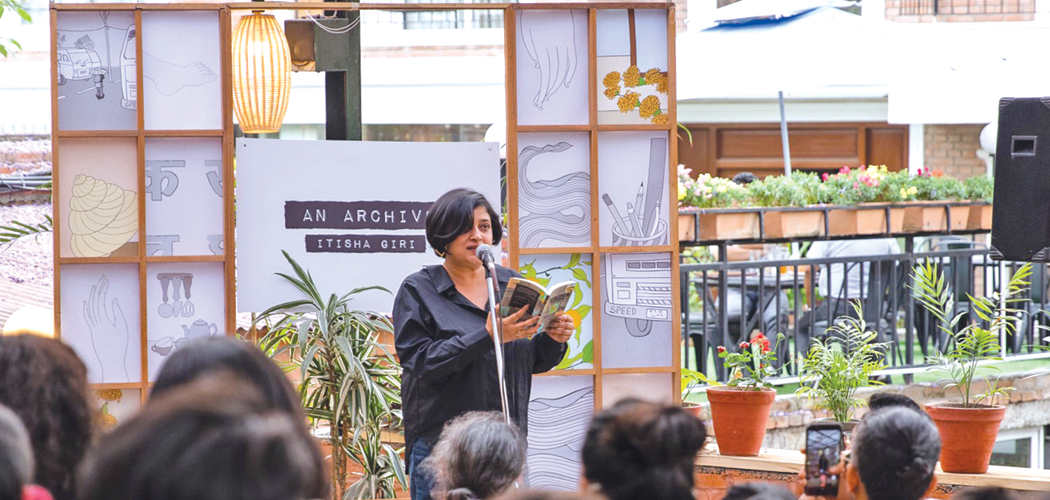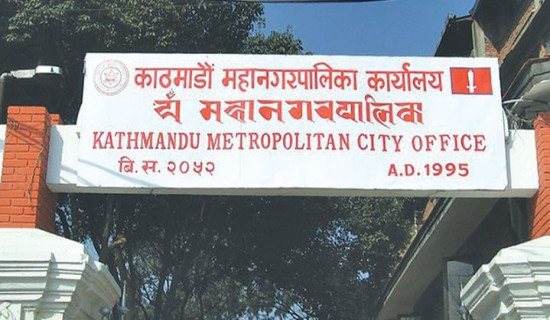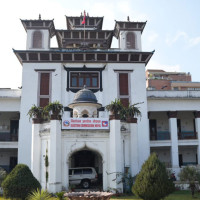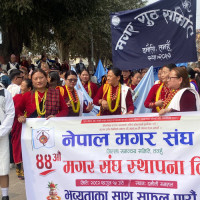- Saturday, 28 February 2026
An anthology greater than the sum of its verses
Lalitpur, May 4: There are poems that come from the bottom of the heart, from an avalanche of emotions that the writer does not wish to hold back; and there are poems that come from the mind, crafted deliberately, rather intellectually, to make a specific point or evoke a certain image. And then, there’s ‘An Archive’ which is both.
Launched amid a programme at Sanepa, Lalitpur, on Saturday, the anthology by Itisha Giri is the whole gamut of human emotions-packed verses that refuse to stay within the confines of the pages they have been allotted. Expressing defiance, anger, sadness, fright, frustration, longing, love, hope and, occasionally humour, the 37 poems in ‘An Archive’ bring so much out from the writer and present so much to the reader that it feels almost deceptive that the book is only 105 pages long.
That makes it surprising then that the poems and in fact, the book were not really pre-planned. Author Giri shared as much talking to The Rising Nepal after the launch. “I did not set out to make An Archive,” she said. “Everything happened spontaneously. Different moments give rise to different feelings which spawn these writings.”
It speaks volumes about Giri’s abilities as a writer then that phrases like “A tyre is a pneumatic, inanimate object made from hair, skin, nails, and asphalt” (Poem: Tyres) and “I sat in front of the fire burning with the rage of a paper trail of cash spitting ash that stuck to my plastic face on display for the plates per head” (Poem: On My Wedding Day) containing multi-layered metaphors and signifying meanings greater than the sum of the words used to express them come spontaneously to her.
Giri was already a noted poet before ‘An Archive.’ Her poems have appeared in literary magazines and anthologies such as ‘The House of Snow,’ ‘The Aerogram’ and ‘La.Lit.’ She is the editor of ‘These Fine Lines,’ an anthology of poems written by Nepali women who explore their experiences within the spectrum of abandon and restraint. She is also one half of the monthly feminist podcast ‘Boju Bajai.’
These feminist roots also shine through in ‘An Archive.’ The poems published here explore women’s issues, stories and lived experiences. They look at the dehumanising treatment of women, their objectification, the marginalisation of their voices and the disregard of their abilities. The poem ‘When I Have a Daughter’ perfectly encapsulates this and sums up, in five stanzas, the things women go through, the things they are put through, every day. The phrase, “When I have a daughter, I will bathe her in milk tinged with acid every day so when she is under attack, like a snake charmer, she is immune to the venom and its decay” is chilling but shows how normalised violence against women has become. Just like a parent has to accept that one day their child will grow up, go to school, get married and the like, a mother has to accept that one day, her daughter may get acid thrown at her.
All poems in Giri’s book are vivid but some are more poignant than others. This may be because, as Giri acknowledged, they were written in response to modern issues and questions. They talk about the happenings of today and hence, are more relatable to the readers.
Nevertheless, as good as it may be, one cannot skirt around the fact that having this book, any book, in English limits its readership among the wider Nepali speaking public. So, would Giri consider having the book translated into Nepali? “Yes,” she said. “I would love to have it translated but I don’t know if the book can exist in the same form if it is taken to other languages. But I really want it, or some parts of it, translated.”

















